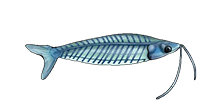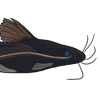/siluriformes/callichthyidae/corydoras/acutus/1.jpg)
C. acutus
(i:5, k:11)/siluriformes/callichthyidae/corydoras/amapaensis/1.jpg)
C. amapaensis
(i:6, k:7)/siluriformes/callichthyidae/corydoras/areio/1.jpg)
C. areio
(i:2, k:4)/siluriformes/callichthyidae/corydoras/aurofrenatus/1.jpg)
C. aurofrenatus
(i:10, k:4)/siluriformes/callichthyidae/corydoras/blochi/1.jpg)
C. blochi
(i:9, k:8)/siluriformes/callichthyidae/corydoras/caramater/1.jpg)
C. caramater
(i:7, k:0)/siluriformes/callichthyidae/corydoras/cervinus/1.jpg)
C. cervinus
(i:5, k:13)/siluriformes/callichthyidae/corydoras/cf_spilurus/1.jpg)
C. cf. spilurus
(i:1, k:0)/siluriformes/callichthyidae/corydoras/coriatae/1.jpg)
C. coriatae
(i:2, k:2)/siluriformes/callichthyidae/corydoras/cortesi/1.jpg)
C. cortesi
(i:1, k:1)/siluriformes/callichthyidae/corydoras/desana/1.jpg)
C. desana
(i:2, k:0)/siluriformes/callichthyidae/corydoras/ellisae/1.jpg)
C. ellisae
(i:2, k:7)/siluriformes/callichthyidae/corydoras/filamentosus/1.jpg)
C. filamentosus
(i:3, k:1)/siluriformes/callichthyidae/corydoras/fowleri/1.jpg)
C. fowleri
(i:9, k:27)/siluriformes/callichthyidae/corydoras/fulleri/1.jpg)
C. fulleri
(i:13, k:9)/siluriformes/callichthyidae/corydoras/geoffroy/1.jpg)
C. geoffroy
(i:4, k:4)/siluriformes/callichthyidae/corydoras/iiap/1.jpg)
C. iiap
(i:9, k:14)/siluriformes/callichthyidae/corydoras/maculifer/1.jpg)
C. maculifer
(i:1, k:2)/siluriformes/callichthyidae/corydoras/narcissus/1.jpg)
C. narcissus
(i:9, k:13)/siluriformes/callichthyidae/corydoras/negro/1.jpg)
C. negro
(i:2, k:5)/siluriformes/callichthyidae/corydoras/orcesi/1.jpg)
C. orcesi
(i:13, k:13)/siluriformes/callichthyidae/corydoras/ourastigma/1.jpg)
C. ourastigma
(i:4, k:6)/siluriformes/callichthyidae/corydoras/oxyrhynchus/1.jpg)
C. oxyrhynchus
(i:1, k:0)/siluriformes/callichthyidae/corydoras/pastazensis/1.jpg)
C. pastazensis
(i:4, k:8)/siluriformes/callichthyidae/corydoras/saramaccensis/1.jpg)
C. saramaccensis
(i:1, k:1)/siluriformes/callichthyidae/corydoras/sarareensis/1.jpg)
C. sarareensis
(i:6, k:3)/siluriformes/callichthyidae/corydoras/semiaquilus/1.jpg)
C. semiaquilus
(i:15, k:24)/siluriformes/callichthyidae/corydoras/septentrionalis/1.jpg)
C. septentrionalis
(i:16, k:34)/siluriformes/callichthyidae/corydoras/serratus/1.jpg)
C. serratus
(i:16, k:12)/siluriformes/callichthyidae/corydoras/simulatus/1.jpg)
C. simulatus
(i:13, k:25)/siluriformes/callichthyidae/corydoras/solox/1.jpg)
C. solox
(i:8, k:1)/siluriformes/callichthyidae/corydoras/sp_hybrid%281%29/1.jpg)
C. sp. hybrid(1)
(i:1, k:0)/siluriformes/callichthyidae/corydoras/sp%281%29/1.jpg)
C. sp. (1)
(i:4, k:0)
C. sp. (C008)
(i:0, k:1)/siluriformes/callichthyidae/corydoras/sp%28c016%29/1.jpg)
C. sp. (C016)
(i:2, k:6)/siluriformes/callichthyidae/corydoras/sp%28c024%29/1.jpg)
C. sp. (C024)
(i:3, k:1)/siluriformes/callichthyidae/corydoras/sp%28c028%29/1.jpg)
C. sp. (C028)
(i:1, k:1)
C. sp. (C029)
(i:0, k:0)/siluriformes/callichthyidae/corydoras/sp%28c038%29/1.jpg)
C. sp. (C038)
(i:1, k:2)/siluriformes/callichthyidae/corydoras/sp%28c042%29/1.jpg)
C. sp. (C042)
(i:12, k:11)/siluriformes/callichthyidae/corydoras/sp%28c047%29/1.jpg)
C. sp. (C047)
(i:1, k:0)
C. sp. (C051)
(i:0, k:0)
C. sp. (C061)
(i:0, k:0)
C. sp. (C063)
(i:0, k:0)
C. sp. (C077)
(i:0, k:0)
C. sp. (C078)
(i:0, k:0)/siluriformes/callichthyidae/corydoras/sp%28c086%29/1.jpg)
C. sp. (C086)
(i:1, k:0)
C. sp. (C092)
(i:0, k:2)/siluriformes/callichthyidae/corydoras/sp%28c094%29/1.jpg)
C. sp. (C094)
(i:1, k:0)/siluriformes/callichthyidae/corydoras/sp%28c095%29/1.jpg)
C. sp. (C095)
(i:1, k:0)/siluriformes/callichthyidae/corydoras/sp%28c099%29/1.jpg)
C. sp. (C099)
(i:1, k:0)/siluriformes/callichthyidae/corydoras/sp%28c109%29/1.jpg)
C. sp. (C109)
(i:2, k:1)/siluriformes/callichthyidae/corydoras/sp%28c124%29/1.jpg)
C. sp. (C124)
(i:4, k:4)/siluriformes/callichthyidae/corydoras/sp%28c127%29/1.jpg)
C. sp. (C127)
(i:11, k:6)/siluriformes/callichthyidae/corydoras/sp%28c145%29/1.jpg)
C. sp. (C145)
(i:1, k:1)
C. sp. (C146)
(i:0, k:0)
C. sp. (C149)
(i:0, k:0)
C. sp. (C153)
(i:0, k:0)/siluriformes/callichthyidae/corydoras/sp%28c155%29/1.jpg)
C. sp. (C155)
(i:1, k:2)/siluriformes/callichthyidae/corydoras/sp%28cw012%29/1.jpg)
C. sp. (Cw012)
(i:6, k:8)
C. sp. (Cw017)
(i:0, k:0)/siluriformes/callichthyidae/corydoras/sp%28cw053%29/1.jpg)
C. sp. (Cw053)
(i:4, k:0)/siluriformes/callichthyidae/corydoras/sp%28cw055%29/1.jpg)
C. sp. (Cw055)
(i:2, k:0)/siluriformes/callichthyidae/corydoras/sp%28cw059%29/1.jpg)
C. sp. (Cw059)
(i:1, k:0)/siluriformes/callichthyidae/corydoras/sp%28cw066%29/1.jpg)
C. sp. (Cw066)
(i:5, k:0)/siluriformes/callichthyidae/corydoras/sp%28cw073%29/1.jpg)
C. sp. (Cw073)
(i:2, k:0)/siluriformes/callichthyidae/corydoras/sp%28cw075%29/1.jpg)
C. sp. (Cw075)
(i:2, k:0)/siluriformes/callichthyidae/corydoras/sp%28cw080%29/1.jpg)
C. sp. (Cw080)
(i:5, k:3)/siluriformes/callichthyidae/corydoras/sp%28cw118%29/1.jpg)
C. sp. (Cw118)
(i:2, k:0)/siluriformes/callichthyidae/corydoras/sp%28cw120%29/1.jpg)
C. sp. (Cw120)
(i:1, k:0)/siluriformes/callichthyidae/corydoras/sp%28cw124%29/1.jpg)
C. sp. (Cw124)
(i:3, k:5)
C. sp. (Cw128)
(i:0, k:1)/siluriformes/callichthyidae/corydoras/sp%28cw143%29/1.jpg)
C. sp. (Cw143)
(i:3, k:1)/siluriformes/callichthyidae/corydoras/sp%28cw149%29/1.jpg)
C. sp. (Cw149)
(i:2, k:0)
C. sp. (Cw164)
(i:0, k:0)
C. sp. (Cw166)
(i:0, k:0)
C. sp. (Cw174)
(i:0, k:0)
C. sp. (Cw175)
(i:0, k:0)
C. sp. (Cw180)
(i:0, k:0)
C. sp. (Cw195)
(i:0, k:0)
C. sp. (Cw201)
(i:0, k:0)
C. sp. (Cw206)
(i:0, k:0)
C. sp. (Cw207)
(i:0, k:0)
C. sp. (Cw209)
(i:0, k:0)
C. sp. (Cw214)
(i:0, k:0)/siluriformes/callichthyidae/corydoras/spilurus/1.jpg)
C. spilurus
(i:3, k:0)/siluriformes/callichthyidae/corydoras/stenocephalus/1.jpg)
C. stenocephalus
(i:5, k:11)/siluriformes/callichthyidae/corydoras/treitlii/1.jpg)
C. treitlii
(i:3, k:2)/siluriformes/callichthyidae/corydoras/vittatus/1.jpg)
C. vittatus
(i:11, k:6)/siluriformes/callichthyidae/corydoras/zawadzkii/1.jpg)
C. zawadzkii
(i:4, k:0)
|





/siluriformes/callichthyidae/corydoras/septentrionalis/1.jpg)
/siluriformes/callichthyidae/corydoras/fowleri/1.jpg)
/siluriformes/callichthyidae/corydoras/simulatus/1.jpg)
/siluriformes/callichthyidae/corydoras/semiaquilus/1.jpg)
/siluriformes/callichthyidae/corydoras/iiap/1.jpg)
/siluriformes/callichthyidae/corydoras/orcesi/1.jpg)
/siluriformes/callichthyidae/corydoras/cervinus/1.jpg)
/siluriformes/callichthyidae/corydoras/narcissus/1.jpg)
/siluriformes/callichthyidae/corydoras/serratus/1.jpg)
/siluriformes/callichthyidae/corydoras/sp%28c042%29/1.jpg)
/siluriformes/callichthyidae/corydoras/acutus/1.jpg)
/siluriformes/callichthyidae/corydoras/acutus/1.jpg)
/siluriformes/callichthyidae/corydoras/amapaensis/1.jpg)
/siluriformes/callichthyidae/corydoras/areio/1.jpg)
/siluriformes/callichthyidae/corydoras/aurofrenatus/1.jpg)
/siluriformes/callichthyidae/corydoras/blochi/1.jpg)
/siluriformes/callichthyidae/corydoras/caramater/1.jpg)
/siluriformes/callichthyidae/corydoras/cervinus/1.jpg)
/siluriformes/callichthyidae/corydoras/cf_spilurus/1.jpg)
/siluriformes/callichthyidae/corydoras/coriatae/1.jpg)
/siluriformes/callichthyidae/corydoras/cortesi/1.jpg)
/siluriformes/callichthyidae/corydoras/desana/1.jpg)
/siluriformes/callichthyidae/corydoras/ellisae/1.jpg)
/siluriformes/callichthyidae/corydoras/filamentosus/1.jpg)
/siluriformes/callichthyidae/corydoras/fowleri/1.jpg)
/siluriformes/callichthyidae/corydoras/fulleri/1.jpg)
/siluriformes/callichthyidae/corydoras/geoffroy/1.jpg)
/siluriformes/callichthyidae/corydoras/iiap/1.jpg)
/siluriformes/callichthyidae/corydoras/maculifer/1.jpg)
/siluriformes/callichthyidae/corydoras/narcissus/1.jpg)
/siluriformes/callichthyidae/corydoras/negro/1.jpg)
/siluriformes/callichthyidae/corydoras/orcesi/1.jpg)
/siluriformes/callichthyidae/corydoras/ourastigma/1.jpg)
/siluriformes/callichthyidae/corydoras/oxyrhynchus/1.jpg)
/siluriformes/callichthyidae/corydoras/pastazensis/1.jpg)
/siluriformes/callichthyidae/corydoras/saramaccensis/1.jpg)
/siluriformes/callichthyidae/corydoras/sarareensis/1.jpg)
/siluriformes/callichthyidae/corydoras/semiaquilus/1.jpg)
/siluriformes/callichthyidae/corydoras/septentrionalis/1.jpg)
/siluriformes/callichthyidae/corydoras/serratus/1.jpg)
/siluriformes/callichthyidae/corydoras/simulatus/1.jpg)
/siluriformes/callichthyidae/corydoras/solox/1.jpg)
/siluriformes/callichthyidae/corydoras/sp_hybrid%281%29/1.jpg)
/siluriformes/callichthyidae/corydoras/sp%281%29/1.jpg)
/siluriformes/callichthyidae/corydoras/sp%28c016%29/1.jpg)
/siluriformes/callichthyidae/corydoras/sp%28c024%29/1.jpg)
/siluriformes/callichthyidae/corydoras/sp%28c028%29/1.jpg)
/siluriformes/callichthyidae/corydoras/sp%28c038%29/1.jpg)
/siluriformes/callichthyidae/corydoras/sp%28c042%29/1.jpg)
/siluriformes/callichthyidae/corydoras/sp%28c047%29/1.jpg)
/siluriformes/callichthyidae/corydoras/sp%28c086%29/1.jpg)
/siluriformes/callichthyidae/corydoras/sp%28c094%29/1.jpg)
/siluriformes/callichthyidae/corydoras/sp%28c095%29/1.jpg)
/siluriformes/callichthyidae/corydoras/sp%28c099%29/1.jpg)
/siluriformes/callichthyidae/corydoras/sp%28c109%29/1.jpg)
/siluriformes/callichthyidae/corydoras/sp%28c124%29/1.jpg)
/siluriformes/callichthyidae/corydoras/sp%28c127%29/1.jpg)
/siluriformes/callichthyidae/corydoras/sp%28c145%29/1.jpg)
/siluriformes/callichthyidae/corydoras/sp%28c155%29/1.jpg)
/siluriformes/callichthyidae/corydoras/sp%28cw012%29/1.jpg)
/siluriformes/callichthyidae/corydoras/sp%28cw053%29/1.jpg)
/siluriformes/callichthyidae/corydoras/sp%28cw055%29/1.jpg)
/siluriformes/callichthyidae/corydoras/sp%28cw059%29/1.jpg)
/siluriformes/callichthyidae/corydoras/sp%28cw066%29/1.jpg)
/siluriformes/callichthyidae/corydoras/sp%28cw073%29/1.jpg)
/siluriformes/callichthyidae/corydoras/sp%28cw075%29/1.jpg)
/siluriformes/callichthyidae/corydoras/sp%28cw080%29/1.jpg)
/siluriformes/callichthyidae/corydoras/sp%28cw118%29/1.jpg)
/siluriformes/callichthyidae/corydoras/sp%28cw120%29/1.jpg)
/siluriformes/callichthyidae/corydoras/sp%28cw124%29/1.jpg)
/siluriformes/callichthyidae/corydoras/sp%28cw143%29/1.jpg)
/siluriformes/callichthyidae/corydoras/sp%28cw149%29/1.jpg)
/siluriformes/callichthyidae/corydoras/spilurus/1.jpg)
/siluriformes/callichthyidae/corydoras/stenocephalus/1.jpg)
/siluriformes/callichthyidae/corydoras/treitlii/1.jpg)
/siluriformes/callichthyidae/corydoras/vittatus/1.jpg)
/siluriformes/callichthyidae/corydoras/zawadzkii/1.jpg)